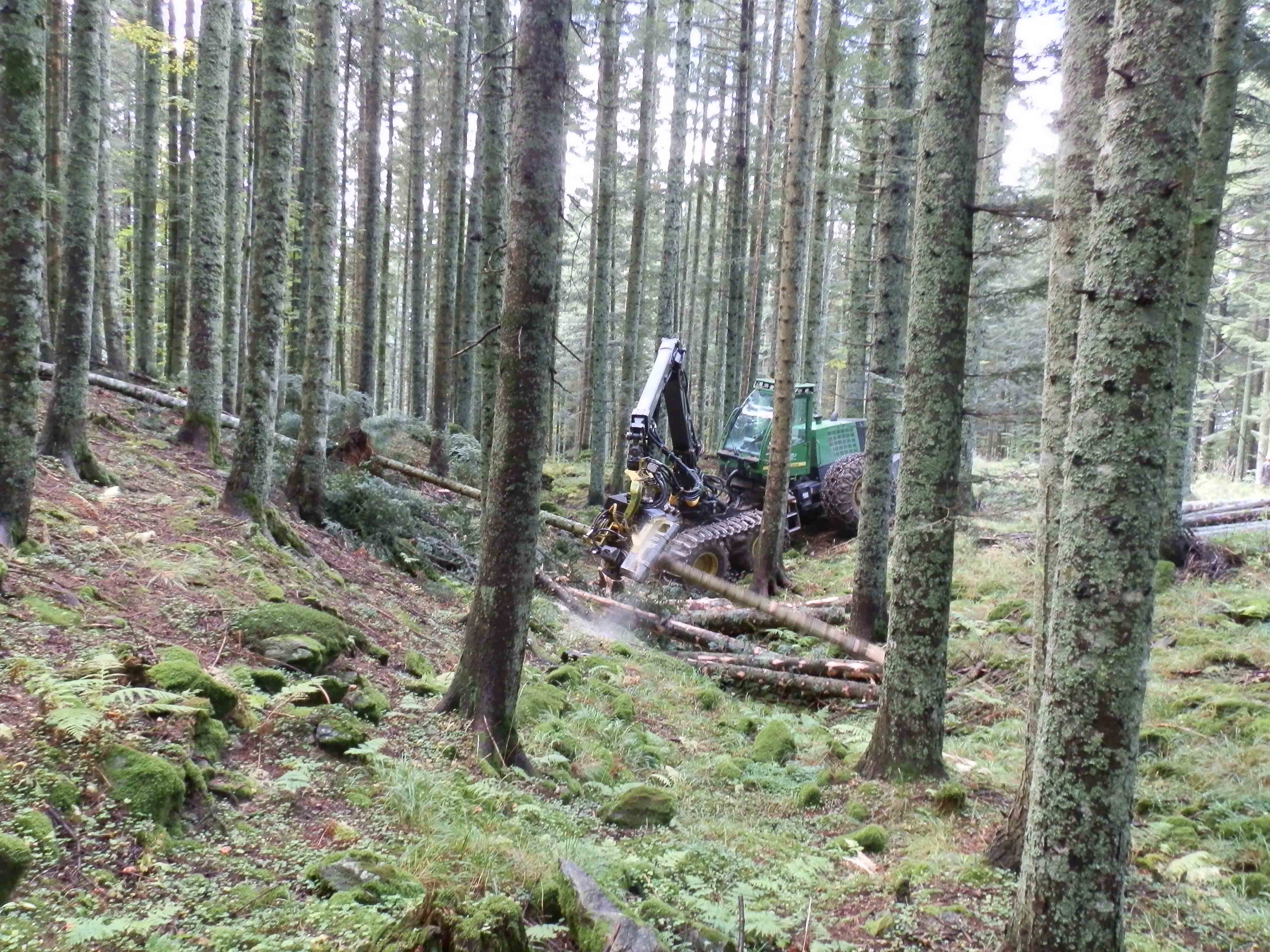
Modern machines and devices for harvesting and transporting wood are largely similar internationally, and their number is manageable. But the processes, with which they are used locally, differ greatly depending on the natural framework conditions, social environment and market situation. This holds true worldwide, but also within Europe and is a yardstick for the competent and responsible use of technology in the sensitive natural area of the forest. The aim of the project is to show this technological diversity, to explain it and to promote it through targeted training.
This course describes a logical, explicit and transparent method for unambiguously describing a harvesting chain, as derived from the combinations of more tasks and technologies geared to turn standing trees into commercial assortments stacked at the roadside landing. The system is based on the changes of state (standing tree, felled tree, delimbed stem, log etc.) and position (in the forest, at the extraction trail, at the roadside landing) of the work object.
This course describes how to assess any defined harvesting chains in terms of: Productivity and cost; Environmental impact; Societal compatibility. After assessing the performance of the selected chains under all three dimensions, decision-makers will have the element for comparing options and coming to an operational decision
Deepending on site characteristics, harvesting can be organized in several ways, according to several chains described through the functiograms. After assessing the economic, environmental and societal performance of each chain, alternative chains can be ranked according to the weight given to each specific criterion - namely: economics, environment and societal demands. This course describes a logical, explicit and transparent method for ranking options, so as to facilitate the decision-making task and explain its results to all stakeholders in the most transparent way.
This course offers detailed descriptions of the harvesting solutions that are most common in different parts of Europe
This course offers a description of the techniques and technologies used for the main forest harvesting tasks and namely: felling, delimbing, crosscutting and extraction. That description already exists as part of the statutory courses of the participating Universities, which have uploaded their own versions. All versions are indeed available as part of this course: each teacher can decide which one to assign to their students.
